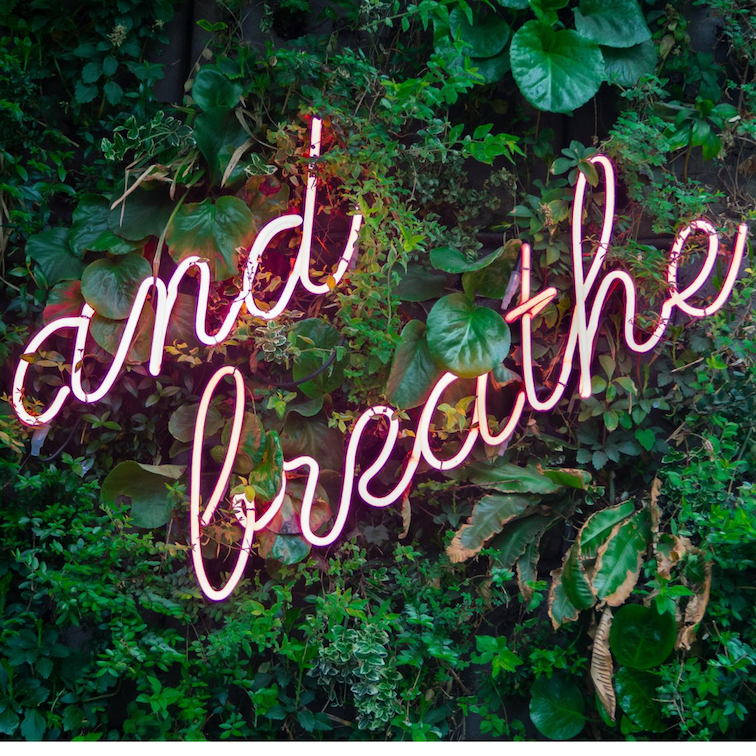Written by Julie Atkin, Senior Women’s Health Physiotherapist
Breathing – why does it matter – besides the obvious?
Breathing….. it is the single most important job that our body has to do, all day, every day. Without it nothing else can happen. It’s one of those things we take for granted, and of those things we just assume we know how to do well – I mean, you’re still alive & breathing right now so you must be doing something right, right?
Breathing influences many of our body functions, movements, and even our emotions – the way you do it will determine whether that influence is positive or negative. Dysfunctional breathing causes an imbalance in the oxygen and carbon dioxide levels in our body, which can negatively impact our pH balance & immune system, hormones, brain function and ability of all muscles to function well. Just to name a few.
The muscles we use for breathing have a role in our core stability, pelvic floor function, fitness and even our speech. And when we use less than ideal breathing patterns we not only compromise core stability, but we overuse the ‘back-up’ muscles, which are the ones around our neck & shoulders…. ever noticed how tight they get when you feel stressed or anxious, which are time we tend to breathe less deeply?
Speaking of stress and anxiety…. Dysfunctional breathing can actually add to it by triggering our nervous system to go into “fight or flight” mode – causing the release of stress hormones that ramp up our senses and physical responsiveness, which is good to have when you are being threatened by a bear, but not so necessary if you are sitting at your desk. Ongoing high levels of these hormones have been linked to anxiety and impaired immunity. In addition to all this, it can alter also the way our brains process pain messages, not for the better.
So…. It would make sense then, that learning to breathe in a more functional way can positively influence all of these things. It can help us in so many more ways than you might have ever imagined:
- Decreasing anxiety
- Boosting immune system
- Improve cardiovascular fitness
- Improve core stability and pelvic floor function
- Decrease pain
- Decrease neck and shoulder tension
- Decrease back tension or pain
- and many more…
AND – added bonus, we get more of that beautiful oxygen in with less effort! Who doesn’t want their body’s number one job of every day to be not only more effective, but easier?
How can you tell if your breathing is ok? If you place one hand on your chest and one hand on your tummy and take a medium sized breath in – what part do you feel moving the most? If its your chest you would benefit from some breathing retraining. Other signs include
- feeling out of breath
- frequently sighing or yawning
- habitual sniffing, throat clearing or nasal stuffiness
- fast talking
- fast breathing
The key to improving your breathing is learning to use your diaphragm which was designed to be our primary muscle for breathing, rather than the neck and shoulder muscles. The diaphragm tends to automatically kick in when we set ourselves up in a good alignment, with the bottom of your rib cage in line with the bony bits at the front of your pelvis. If you are slumped and squishing your tummy down the diaphragm doesn’t have the room to move. Likewise, if you tend to lift your chest too high or push it out and the bottom of your ribs are in front of those hip bones it can’t contract effectively.
So, try bringing those ribs in line with your hips and take a moderate breath in. If your tummy automatically goes out more than your chest (we look for 90% tummy movement 10% chest) then you are on the right track. Feel how much more air you get in – filling up all the way to the bottom of your lungs. And feel how much easier it is. The more you breathe in this way, the quicker the brain will recognise that the Number One Job is being done better, at lower energy cost, and will start to automatically try to do it this way instead. But it will take practice.
Of course, this is just the tip of the iceberg in terms of breathing and is very general advice. If you feel that your breathing could use some help to become more functional and effective, please contact us for some individualised help.


